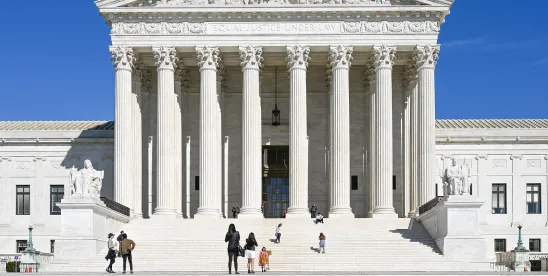In Ames v. Ohio Dept. of Youth Servs., the U.S. Supreme Court recently settled a circuit split and held that the Sixth Circuit’s “background circumstances” rule, which was applied only to plaintiffs from majority groups—commonly referred to as “reverse discrimination” claims—was inconsistent with Title VII and the Court’s precedent.
The Sixth Circuit, and four other federal circuit courts, held that in addition to the elements required to establish a case of discrimination under the McDonnell Douglas framework, a member of a “majority” group would have to establish an additional element – namely, “background circumstances to support the suspicion that the defendant is that unusual employer who discriminates against the majority.” Ames v. Ohio Dept. of Youth Servs., 87 F.4th 822, 825 (6th Cir. 2023) (per curium).
Thus, the “background circumstances” rule created two different evidentiary standards for Title VII plaintiffs’ prima facie case – a lighter burden for minority groups and a heavier burden for members of majority groups. Other federal circuit courts have expressly rejected the “background circumstances” rule. Notably, the First Circuit (which covers Maine, New Hampshire, Massachusetts, Rhode Island, and Puerto Rico) has not applied the rule.
Background
In Ames, the employee-plaintiff was a heterosexual female working as a program administrator. She applied for a newly created management position at her company, interviewed for the role, but was not selected for it. Ultimately, the company hired a gay woman to fill the role.
A few days following her interview, the plaintiff was removed from her program administrator role and demoted to a secretarial role, which was the first job she held there. The company then hired a gay man to take her previous role as program administrator.
The plaintiff sued her employer claiming sexual orientation discrimination (i.e., discrimination of the basis of her sex). The trial court granted the company’s motion for summary judgment on plaintiff’s Title VII claim, which the Sixth Circuit affirmed on appeal because the plaintiff could not prove “background circumstances” at the prima facie stage of her case. Ames v. Dept. of Youth Servs., 2023 WL 2539214 (S.D. Ohio Mar. 16, 2023), aff’d, 87 F.4th 822.
Because the plaintiff did not present “evidence that a member of the relevant minority group (here, gay people) made the employment decision at issue, or with statistical evidence showing a pattern of discrimination . . . against members of the majority group [heterosexual people]”, her claim failed. Ames, 87 F.4th at 825.
The Supreme Court’s Decision
On review, the U.S. Supreme Court rejected the Sixth Circuit’s heightened standard for majority-group plaintiffs. In doing so, the Court relied on the text of Title VII and the fact that its disparate-treatment provision makes it unlawful “to fail or refuse to hire or to discharge any individual, or otherwise to discriminate against any individual with respect to his compensation, terms, conditions or privileges of employment, because of such individual’s race, color, religion, sex, or national origin.” 42 U.S.C. § 2000e-2(a)(1) (emphasis added).
The Court also cited its precedent to underscore that “the standard for proving disparate treatment under Title VII does not vary based on whether or not the plaintiff is a member of a majority group.” The Court’s holding is not necessarily groundbreaking, but helpful in that it settles the circuit split and clarifies the prima facie case for Title VII.
In jurisdictions where the “background circumstances” could be used against plaintiffs, the playing field is now leveled, and the decision will now make it easier for members of majority groups to sue for so-called “reverse discrimination.” Because the First Circuit had never applied the “background circumstances” rule, we do not anticipate this decision having any impact on employers in Maine, New Hampshire, Massachusetts, or Rhode Island.




 />i
/>i

